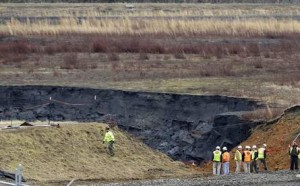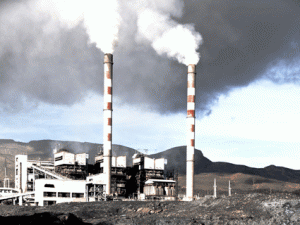More on Fracking and Clean Coal
Some good news and bad news in the energy business.
Colorado Governor John Hickenlooper promulgated new regulations that should go a long ways toward ending pollution from oil and gas wells. Each well will have monitoring equipment that can detect any emissions from the well Here is a link.
The bad news, Duke Energy has a lot of coal ash ponds in the southeast, and one collapsed into the river. Duke is a powerful lobbyist, and has successfully avoided any strict regulation or penalties up to this point. This event may change that.
i am struck by the corporate attitude to these harmful and costly events. Lobbyists are paid, campaigns are funded, lots of false rhetoric is expended fighting regulatory oversight of mining, drilling, and processing operations. “Regulations and government intrusion kills jobs.” So little regulation goes into place until a hugely expensive disaster occurs, with cleanup costs far exceeding the costs to do the job right.
i think fighting regulation is due to the constant corporate pressure to have a good quarterly profit. Expenses that cut into short-term profit are avoided by managers who avoid or never see reports from the field warning of potential environmental problems.
In my experience, weak managers who lack foresight and the ability to sell needed projects to the higher-ups tend to focus on cost cutting. Tanks leak, ash retention ponds fail, and faulty blowout preventers fail, all in the name of quarterly profits.
Last quarter’s numbers look good, but the overall profit picture is not so good for Freedom Industries, Duke Energy, or BP Petroleum.
My favorite case in point is when Freon was banned due to ozone layer damage. The refrigeration industry fought the change until they realized that they were the ones to do the work replacing Freon.
Rather than killing jobs, environmental regulation created jobs and benefited everyone, and the consumer paid the cost, fair enough for having a cool house and car.

